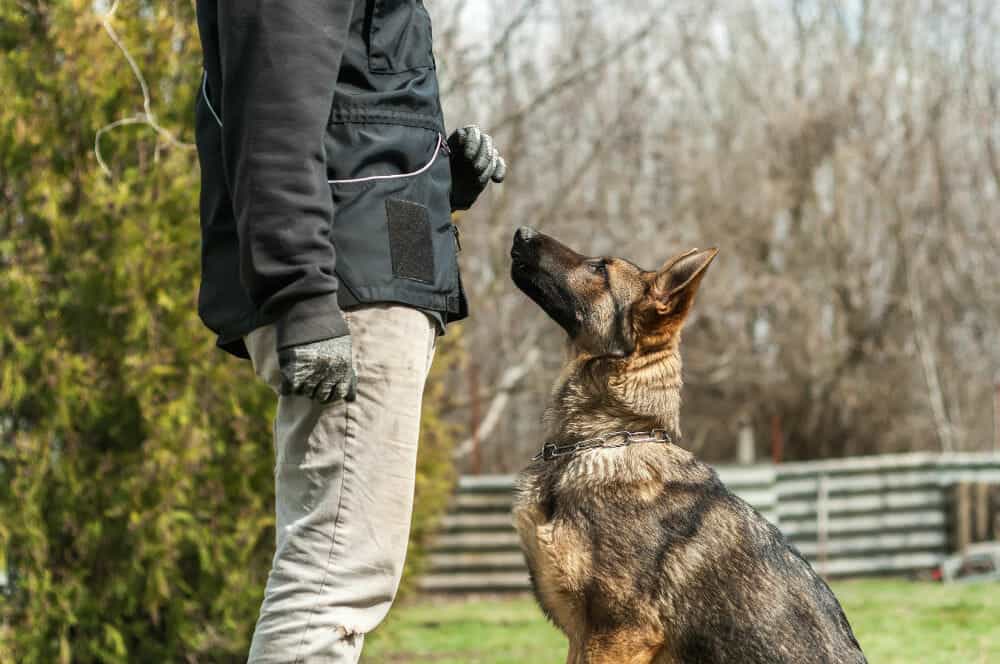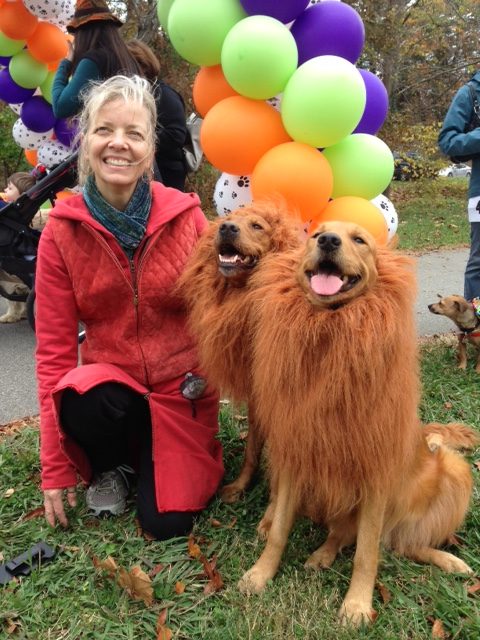Transform Your Pet with These Professional Dog Training Tips
Transform Your Pet with These Professional Dog Training Tips
Blog Article
Important Tips for Successful Dog Training: A Guide for Pet Dog Owners
Reliable dog training is a multifaceted process that calls for a tactical technique tailored to both the family pet's character and the proprietor's objectives. Key components such as establishing regular commands, employing positive support, and facilitating early socializing play critical duties in fostering a well-adjusted canine friend. However, lots of family pet owners come across difficulties that can hinder development, causing stress and unpredictability. Comprehending how to navigate these barriers can considerably improve the training experience, ultimately transforming the partnership between owner and canine. What are the important strategies that can be used to make sure success in this endeavor?
Comprehending Dog Habits
Understanding pet dog habits is important for reliable training and fostering an unified relationship between pooches and their owners. Pet dogs communicate mainly through body movement, articulations, and actions, making it critical for proprietors to analyze these signals accurately. Acknowledging a pet's position, tail placement, and ear positioning can supply insights right into its psychological state. For circumstances, a wagging tail does not constantly indicate happiness; it can additionally signify enjoyment or anxiety.

Socializing plays a considerable duty in canine behavior; exposure to numerous settings, individuals, and other animals can substantially affect a pet dog's character. Elements such as type features and specific personality ought to assist training techniques, as some breeds might have details behavior qualities that require customized techniques. By understanding these aspects, owners can create an encouraging environment that urges favorable habits, leading to effective training outcomes and a much deeper bond with their animals.
Establishing Constant Commands
Effective interaction with your dog starts with developing constant commands. This fundamental aspect of training is crucial for cultivating understanding between you and your pet. Consistency in the commands you use makes sure that your dog can reliably link specific words or phrases with the wanted behaviors.
When picking commands, pick clear, unique words that are easy to state and differentiate from one an additional. Avoid utilizing similar-sounding commands that might confuse your pet. As an example, making use of "sit" and "stay" is proper, but "rest" and "struck" could result in misconceptions.
Furthermore, preserve the very same tone and quantity for each and every command. Pet dogs are delicate to singing cues, so varying your tone can produce complication.
It is equally important to make certain that all household participants get on the exact same page regarding the commands made use of. A united front in command use will stop blended signals and reinforce the understanding process.
Positive Support Strategies
The power of positive reinforcement in pet dog training depends on its capability to encourage wanted habits through rewards and praise. This strategy is based in the principle that actions complied with by favorable outcomes are more probable to be repeated. By integrating positive reinforcement right into your training regimen, you can properly shape your pet's actions in a constructive fashion.
To carry out positive reinforcement, it's check my blog necessary to determine what motivates your pet dog, whether it be treats, toys, or spoken praise. When your pet carries out a wanted action, such as resting on command, quickly award them with a reward or affection. This association in between the command and the favorable end result reinforces their understanding.
It's vital to timing the rewards properly; delivering the reinforcement within secs of the desired habits aids your pet make the connection (dog training). In addition, consistency is essential-- make certain that all relative utilize the very same commands and reward systems to prevent complication

Progressively, you can reduce the frequency of treats as your canine finds out the actions, transitioning to praise or intermittent benefits. This technique not only promotes a solid bond in between you and your pet yet likewise advertises a favorable learning environment, making training a satisfying experience for both.
Socialization and Communication
Consistently exposing your canine to a variety of atmospheres, individuals, and other animals is crucial for their social development. Socialization should begin early, ideally throughout the important home window of 3 to 14 weeks, when pups are most responsive to brand-new experiences. Nonetheless, older pets can additionally profit from continuous socialization efforts.
Present your pet dog to various settings, such as parks, pet-friendly stores, and metropolitan locations. This exposure helps them adapt to numerous stimulations, decreasing stress and anxiety and worry reactions. Encourage favorable communications with various other pets and individuals, making certain that these experiences are risk-free and controlled to foster self-confidence.
Make use of structured playdates with well-mannered pets, as this can boost your canine's social abilities and show them proper behavior. Obedience courses and training sessions also give outstanding possibilities for socialization, permitting your pet dog to interact with others in a supervised setting.
Display your pet dog's body movement during communications, as this will assist you assess their convenience degree. Slowly increase direct exposure to even more challenging situations while ensuring that each experience is positive. A well-socialized pet is much more most likely to show balanced actions, making them a delight to have in any kind of setting.
Attending To Common Training Obstacles
Every dog owner will certainly run into training challenges at some factor, no matter of their canine's age or socializing degree. Recognizing common issues such as stubbornness, disturbances, and fearfulness can help in establishing reliable approaches for improvement.

Diversions throughout training sessions can thwart focus. To fight this, start training in a quiet environment with very little stimulations. Progressively present disturbances as the pet comes to be more skilled in commands. Short, regular training sessions are likewise efficient in maintaining attention.
Fearfulness can hinder a pet's understanding procedure. Progressive desensitization to the source of worry, paired with favorable support, can assist ease stress and anxiety. Patience is crucial; never ever require a dog into a circumstance that causes distress, as this might intensify the issue.
Inevitably, understanding and attending to these typical difficulties with a structured strategy will cultivate a much more productive training experience, strengthening the bond in between canine and proprietor while promoting effective knowing.
Conclusion
In summary, effective pet training relies upon an extensive understanding of canine actions, the facility of consistent commands, and the application of favorable reinforcement strategies. Socialization plays an essential duty in establishing well-adjusted animals, while original site resolving common training obstacles Get More Info requires persistence and adaptability. By carrying out these vital strategies, family pet proprietors can foster a solid bond with their pets and promote desirable habits, ultimately leading to an unified relationship between human beings and their canine companions.
Comprehending pet behavior is necessary for effective training and promoting an unified relationship between dogs and their proprietors.Socializing plays a significant function in pet dog actions; exposure to various atmospheres, individuals, and other animals can substantially influence a dog's temperament.The power of positive support in pet training exists in its capacity to encourage desired behaviors with incentives and appreciation. By including favorable support right into your training routine, you can successfully form your dog's behavior in a constructive manner.
In summary, successful canine training depends on a detailed understanding of canine habits, the facility of constant commands, and the application of positive reinforcement methods.
Report this page